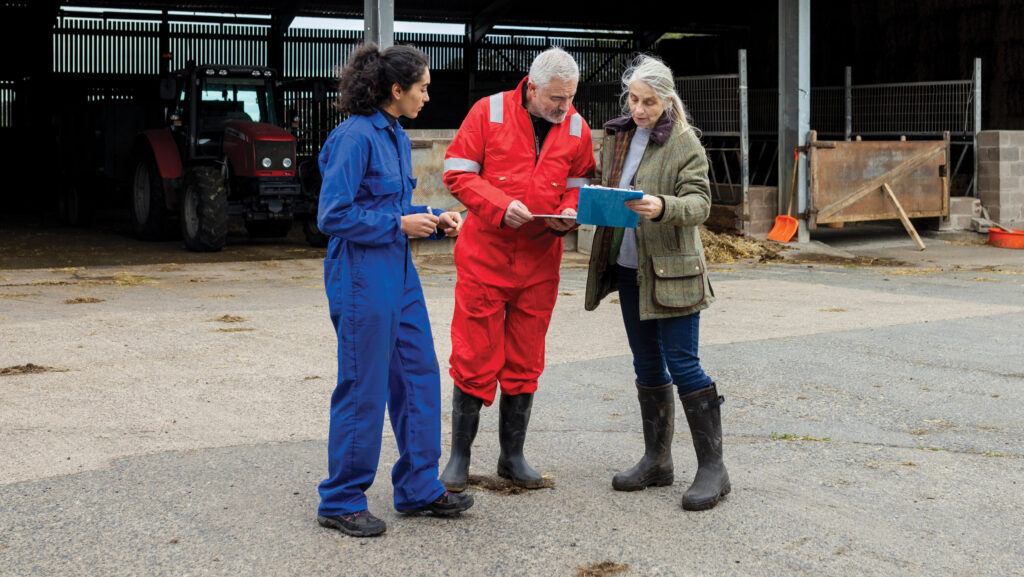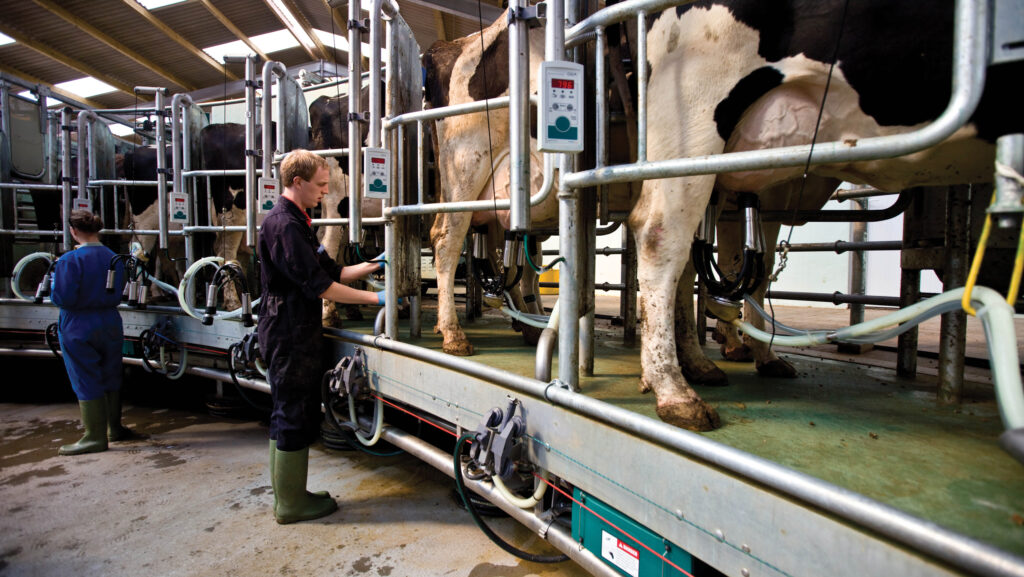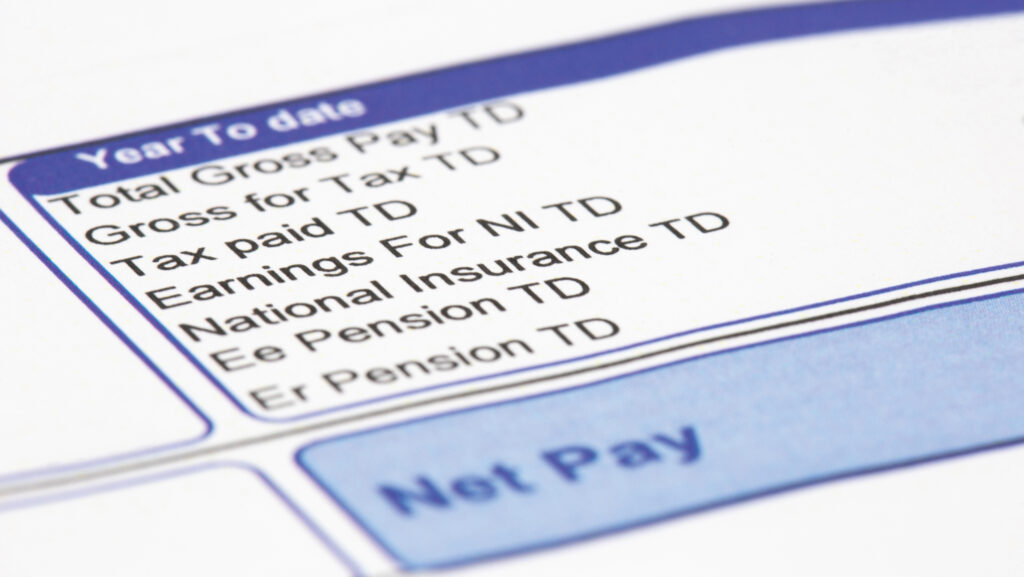Farm staff pay and conditions: How to get the balance right
 © SolStock/iStockphoto
© SolStock/iStockphoto Some farmers award their staff an annual pay rise. For others, however, regular uplifts are not a given, with factors ranging from the individual’s performance to the financial position of the farming business being taken into account.
Common to most farm employers is the challenging labour market and what that means for recruiting and retaining staff.
Pay is a major pull for some workers with rises in their hourly rate or annual salary influencing whether or not they stay in that job.
See also: Legal tips when taking on a new member of staff
With advice from farm management consultants and rural business experts, we look at how to navigate the potential minefield of pay rises.
The starting point
Although an appraisal and a pay rise needn’t go hand in hand, Tillie Williams, head of people at Kite Consulting, says it is a good place to start.
“The appraisal process is quite important in assessing how well someone is doing, although you don’t necessarily need to award a pay rise at that point,” says Tillie, who specialises in supporting farmers with people management.
Every worker should be given a job description when they are hired, and that can be the benchmark for assessing if they are fulfilling what is expected of them, or indeed if they are going over and above the requirements set out in that document.
They might, for example, be taking on more responsibilities not included in the job description, such as managing staff and organising rotas, which could merit a salary uplift.
Simon Britton, head of agri-business consultancy at Knight Frank, who gives pay-award guidance to farms and rural businesses, advises being very clear about roles and responsibilities.
“Getting the job description right at the very beginning is fundamentally important because once that is in place, you can measure how that person has progressed, and perhaps expanded their skill set, which could potentially lead to an increase in salary,” he says.
“If you can narrow the role down to various specifics you can put a value on those.”
While an award might be given, the scale of it can be a lever for motivating an underperforming employee to improve.
“You might advise your employee that together with a pay rise, some key performance indicators will be used to measure their performance and help them with their personal development,” says Simon.
“Alongside that discussion, you can advise them that you will want to meet regularly to review their progress.”
What if the employee asks for a rise?
A worker might love their job, but if the pay isn’t high enough to cover their needs there is a likelihood that they will leave.
Employers should always be open to a discussion about a rise, recommends Tillie.
“I don’t think it is a bad thing that a worker makes the approach. If they didn’t, they may just potentially leave without having a discussion.
“If they are a valued employee that would be a great loss to the business,” she says.
“Ask yourself, what is this person worth to my business?
“If an employee approaches you and you don’t believe they are worth a pay rise or the business cannot afford it, you are in a position where you can negotiate or give an explanation as to why.
“They can then make an informed decision as to whether to remain in the business or leave.”
How much?
Ensuring salaries are in line with market rates and that staff are fairly compensated for their work are good starting points, as is assessing what the business can afford financially.
Individual circumstances are important in pay reviews, says Will Gemmill, executive partner at Ceres Rural, but after a tough couple of years with high costs and falling commodity prices impacting profitability in many farming enterprises, rates must also be considered in combination with market conditions, he adds.
“I think it is a good idea to look at inflation and to make sure that people never feel their salaries are falling in real terms,” says Andrew Martin, an agri-consultant at Knight Frank.
The rate of an increase is very individual to what an employee is delivering, he adds.
“It is a case of stepping back and asking what is this person delivering for my farm? You can have five people in the same role, and they will all have different levels of competence.”
Additional benefits?
It’s not all about money, though. The hike in employers’ national insurance contributions in the autumn Budget will leave employers with less cash for pay rises, but there are alternatives.
What options to offer will depend on the stage an employee has reached in their career or life.
Someone with children, for example, might prefer more flexible working over a pay rise.
Added benefits – such as accommodation, council tax exemption or a vehicle – that increase the value of an employment package, should also be part of the review process, says Will.
What some employers overlook are the conditions in which they expect their staff to work, warns Tillie.
“You can pay somebody all the money in the world but, if they are working in a poor environment and there is a poor working culture, they still won’t stay.
“It is about creating that environment where people can thrive, because if morale is low and the farm is run down, no pay rise will be enough to keep them.”
Will suggests there is less of an appetite among the latest generation of workers to put in the longer hours historically associated with agriculture. This needs to be taken into account, too.

© Tim Scrivener
Performance-related or not?
Basing pay rises on performance can have the unintended consequence of an employee concentrating on farm tasks that are easier to measure to the detriment of the overall business.
There is also a risk of rewarding staff for just doing what is expected of them.
“I have seen situations where an employer links pay to certain milk quality targets that a good herdsperson should be expected to achieve regardless of the prospect of a bonus,” says Tillie.
“Someone can drive up herd fertility by spending lots of money on veterinary intervention instead of just getting the basics right.
“This could impact negatively on the bottom line of the business, so it is a fine balance,” she adds.
Unless the farm has a performance issue, Tillie suggests avoiding this mechanism for assessing bonuses, as it can drive the wrong behaviour.
Should upskilling influence pay?
There is an expectation among the modern workforce that a business will invest in developing skills.
But often, greater experience, further qualifications and training also comes with the expectation of a pay rise.
“Investing in your people is important. Just as you would never buy a tractor and not maintain it, you shouldn’t take on people and not expect to spend money on making sure they deliver their very best for you,” Tillie says.
“When you first employ somebody, they are undoubtedly expensive.
“But once you bring them through the process, and add value to them, then they do deserve a bit more once this initial investment, which is mainly of time, has been repaid.”
Pay benchmarking

© Adobe Stock
Although it is helpful to understand what others operating similar farm businesses pay their staff, it can have negative consequences by luring away employees with the promise of a pay rise.
“Farmers all pick from a very small pond, and you could find yourself needing to offer a pay rise because you have divulged to another farmer what you pay and they offer your employees more,” Kite Consulting’s Tillie Williams.
“It can be quite difficult to have those conversations with your neighbour, but if farmers are members of benchmarking groups, they might discuss it more broadly, which can be useful in understanding where they sit in terms of the pay rates they are offering.”
Changes to the national living wage
Prior to the recent Budget, Ceres Rural’s Will Gemmill says clients had suggested that salaries being reviewed were likely to increase by 4%-6.5% for those slightly above national living wage (NLW) rates.
Where pay and overall packages were already well above market rates, any rises would be lower, perhaps 2-3%.
Post-Budget, the increase in employers’ national insurance contributions typically adds an extra £650 an employee, subject to the size of the business and the various reliefs available, he calculates.
The NLW will increase by 6.7% to £12.21/hour on 1 April 2025.
“This will clearly need factoring in to pay reviews after this date,” says Will.
